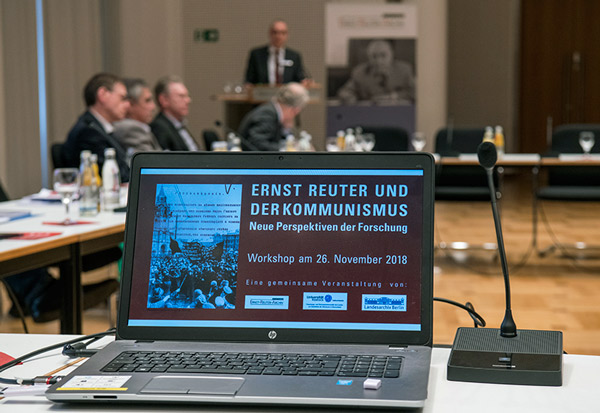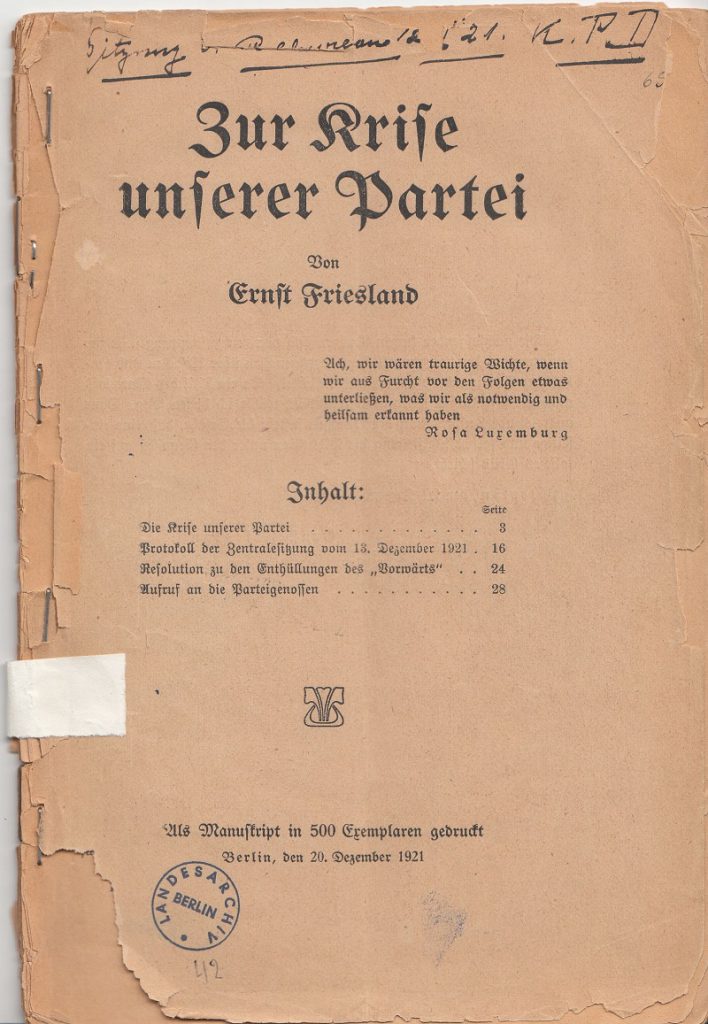
Image credits »© Thomas Platow, Landesarchiv Berlin.

Ernst Reuter the communist
While Ernst Reuter’s life contained many changes of direction, no other episodes in his biography throw up so many unanswered questions as his time as communist Commissar of the Volga (1918) and as functionary of the KPD (Kommunistische Partei Deutschlands, Communist Party of Germany) (1918–1922). Although research has repeatedly produced new assessments, only very limited Russian and Soviet sources have previously been available. This project aims to expand the primary sources for future research regarding Reuter. In cooperation with Russian and German historians, systematic searches have been undertaken in archives in Moscow, Saratov, and Engels. The goal of these searches was to compile all relevant documents, before translating them into German for interrogation. This will not only expand our knowledge of Ernst Reuter’s biography, but also open up new research perspectives.
At the same time, historian Erik Schneeweis is working on a study that focuses on Ernst Reuter’s changing relationship with communism from a biographical, ideological, and cultural perspective. The work is being carried out at the Institute of History at the University of Rostock as a dissertation project and is being supervised by Prof. Dr. Stefan Creuzberger. Schneeweis’ initial findings were published in Berlin in Berlin in Geschichte und Gegenwart. Jahrbuch des Landesarchivs Berlin 2015 under the title “Von radikaler Begeisterung zur Parteikritik: Ernst Reuter und die KPD 1919–1922” (“From Radical Enthusiasm to Party Criticism: Ernst Reuter and the KPD 1919–1922”). On 26 November 2018, together with the Berlin Landesarchiv and the University of Rostock, the Ernst Reuter Archives Foundation led a workshop entitled “Ernst Reuter und der Kommunismus. Neue Perspektiven der Forschung” (“Ernst Reuter and Communism. New Perspectives for Research”).
